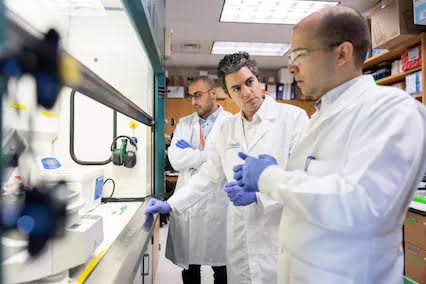Korede Abdullah in Lagos
Researchers at the University of Florida have unveiled findings that could reshape cancer treatment by jumpstarting the body’s own immune system to target tumors.
“It’s a potentially paradigm-shifting discovery,” said UF Health pediatric oncologist Dr. Elias Sayour, speaking with the Tampa Bay Times.
Currently undergoing human trials, the vaccine may one day serve as a universal treatment to enhance the immune system’s fight against cancer.
“This could potentially be a viable approach for every single cancer patient,” Sayour explained. Unlike conventional cancer vaccines that require months to design around unique tumor antigens, this generic mRNA approach triggers the immune system much faster, a critical advantage for patients battling aggressive, fast-spreading tumors.
Published in Nature Biomedical Engineering, the study showed that the experimental mRNA vaccine boosted resistance to tumors in mice when combined with common anticancer drugs — hinting at an alternative to traditional surgery, chemotherapy, or radiation.
A New Form of Immunotherapy
The vaccine works by stimulating the production of PD-L1 proteins within tumors, prompting the innate immune system — the body’s first line of defense — to respond.
“It can elicit a massive immunologic response that effectively resets the immune system, almost like Control-Alt-Delete on the computer,” Sayour said.
This method falls under immunotherapy, an evolving cancer treatment field that uses the body’s own defenses rather than traditional toxic chemicals to target malignant cells.
Hope for Treatment-Resistant Tumors
The study revealed striking results in treating stubborn tumors, especially melanomas, by pairing the mRNA vaccine with monoclonal antibodies, which help the immune system recognize tumors as threats.
It also showed success when used alone on mouse models with skin, bone, and brain cancers — in some cases eradicating tumors entirely.
“By using a vaccine designed not to target cancer specifically but to stimulate a strong immunologic response, we could elicit a very strong anticancer reaction,” said co-author of the study and UF’s assistant vice president for research, Dr. Duane A. Mitchell.



